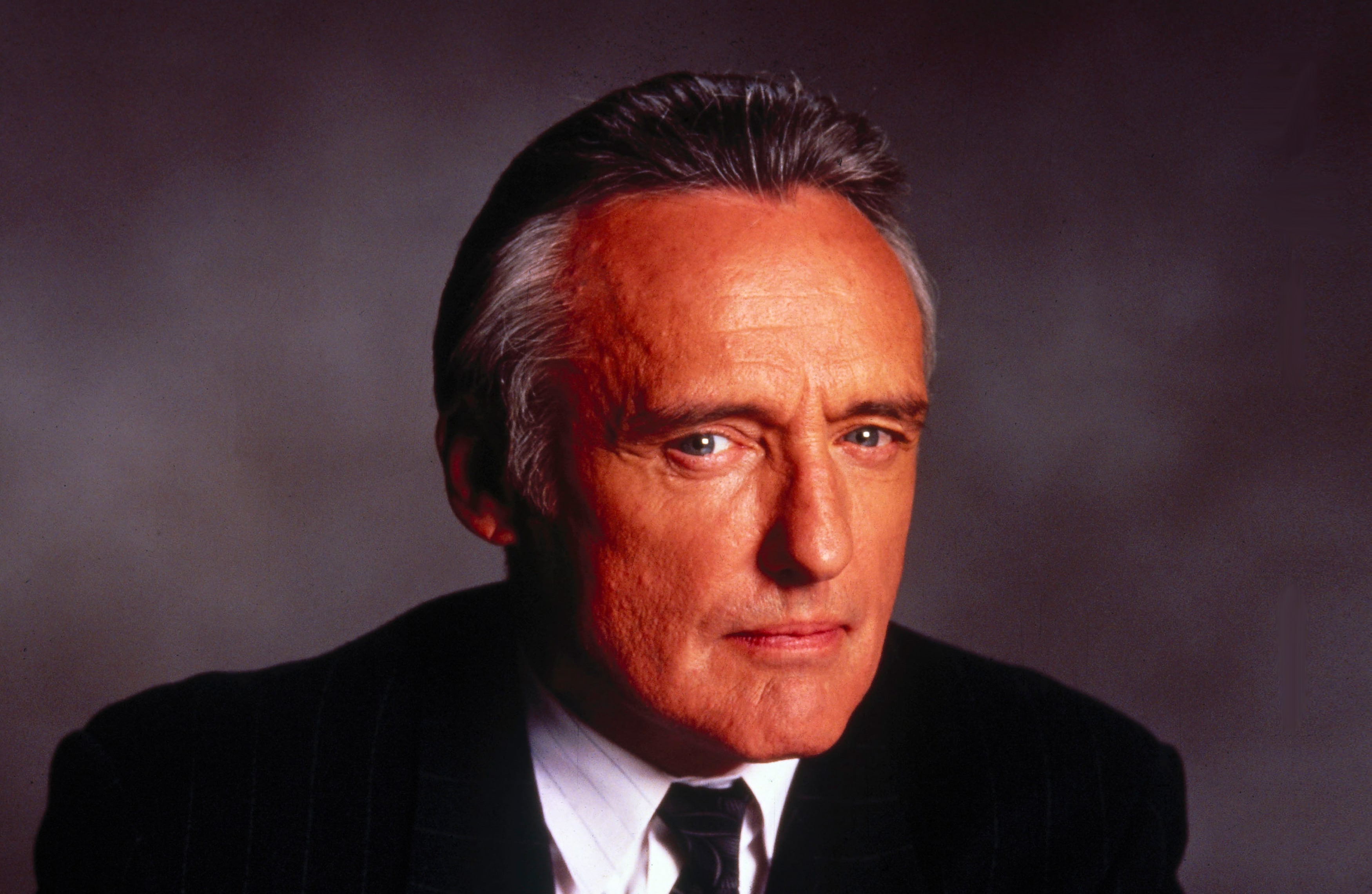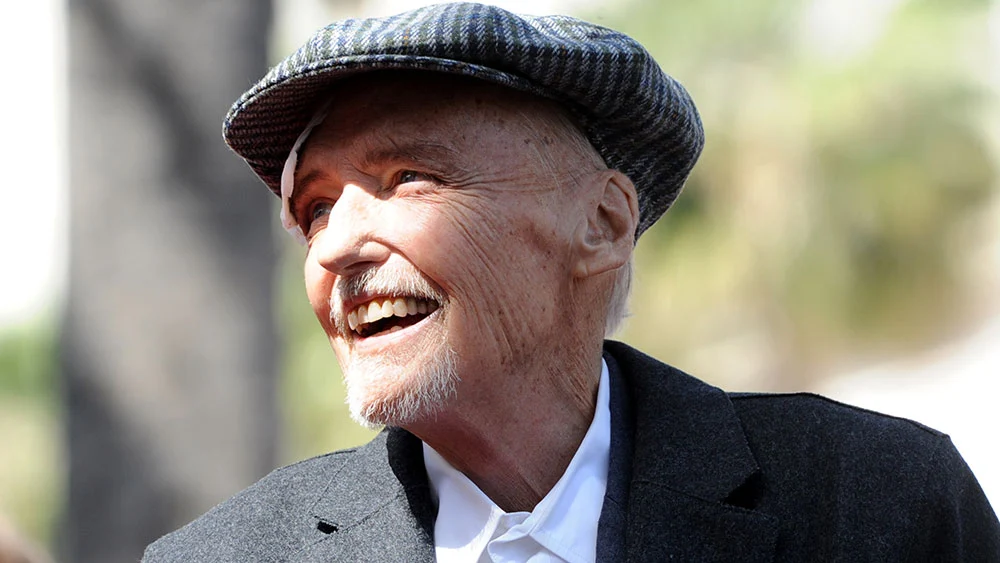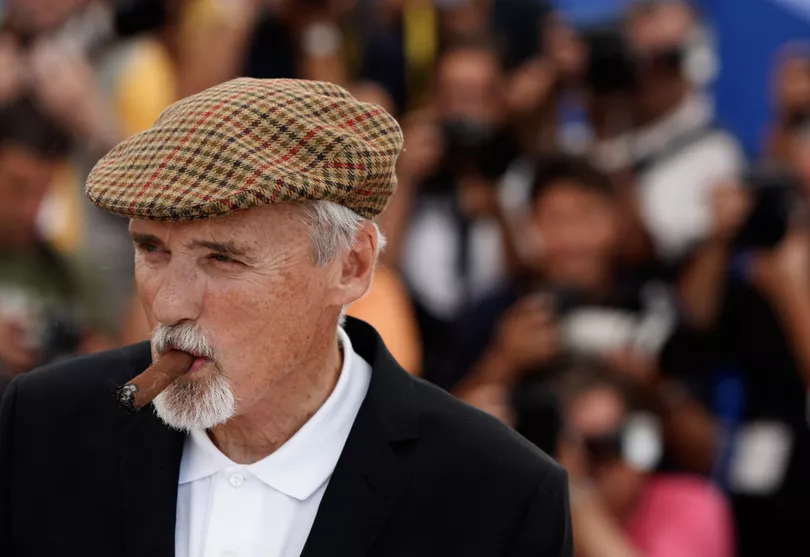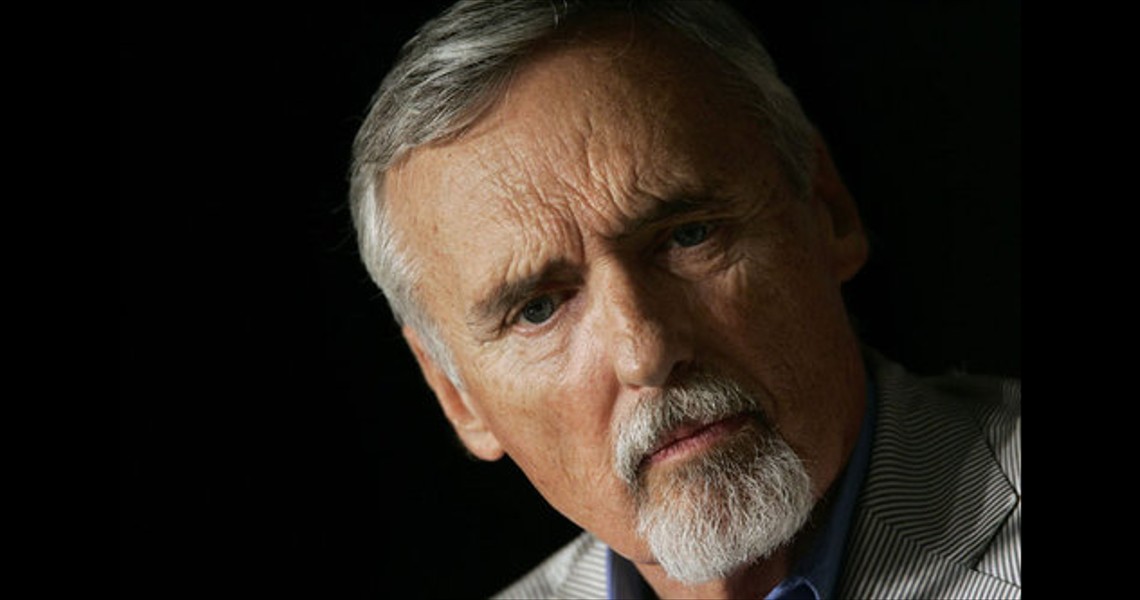Dennis Hopper Net Worth - $40 Million, Interesting Facts About His Life And Much More
Hopper produced a ton of paintings, photographs, and sculptures in addition huge his work in cinema and television. Exhibitions of his art have been held in cities including Washington, D.C., Minneapolis, Amsterdam, Vienna, and Paris. Here is everything you need to know about Dennis Hopper net worth.
Author:Alex MercerReviewer:Nathanial BlackwoodJul 01, 2022964 Shares321.2K Views

American actor, director, and artist Dennis Hopper had a $40 million fortune at the time of his death.
As the director, cowriter, and costar of the influential independent road movie "Easy Rider" from 1969, Dennis Hopper had his debut.
With roles in films including "The Last Movie," "The American Friend," "Apocalypse Now," "Rumble Fish," "Blue Velvet," "Hoosiers," "Colors," and "Speed," he went on to have a successful career.
Hopper produced a ton of paintings, photographs, and sculptures in addition huge his work in cinema and television.
Exhibitions of his art have been held in cities including Washington, D.C., Minneapolis, Amsterdam, Vienna, and Paris. Here is everything you need to know about Dennis Hopper net worth.
Real Estate
Dennis's family put his California mansion in Venice up for sale for $6.2 million a month after he passed away.
For $21,000, Dennis bought the first of what would eventually be five linked lots in 1985. He acquired the house next door in 1999.
He acquired three more neighboring properties throughout the course of three transactions starting in 1997 and concluding in 2008.
The price was quickly lowered to $5.8 million since there were no bidders. In August 2012, the family received $5 million.
Quick Facts About Dennis Hopper
| Name | Dennis Hopper |
| Date of Birth | May 17, 1936 - May 29, 2010 |
| Gender | Male |
| Height | 5 ft 8 in (1.75 m) |
| Profession | Actor, Film director, Photographer, Artist, Screenwriter, Voice Actor, Visual Artist, Filmmaker |
| Nationality | United States of America |
| Net Worth | $40 Million |
Film Career
The metafictional neo-Western "The Last Movie," which Hopper also co-directed and acted in, was released after "Easy Rider".
The movie, meanwhile, fell short of matching the popularity of his previous creations. The American Friend, "Flesh Color," "Tracks," "Mad Dog Morgan," and other movies he later starred in include "Kid Blue," "Mad Dog Morgan," and others.
In 1979, Hopper had prominent parts in Francis Ford Coppola's psychological war drama "Apocalypse Now" and the Spanish thriller "The Sky is Falling" .
His third movie as a director, "Out of the Blue," which he also appeared in alongside Linda Manz, marked the start of the 1980s for him.
After that, Hopper made appearances in "Human Highway" and "King of the Mountain" before teaming up with Coppola once again for "Rumble Fish".
"The Osterman Weekend," "O.C. and Stiggs," and "My Science Project" came next. In terms of movies, Hopper had possibly his best year in 1986.
He appeared in "Riders of the Storm," "The Texas Chainsaw Massacre 2," and "River's Edge," as well as two of David Lynch's most well-known and lauded films, "Blue Velvet" and the sports drama "Hoosiers," among others.
He was nominated for a Best Supporting Actor Academy Award for his performance in the latter. Following "Black Widow," "Straight to Hell," "The Pick-up Artist," "Blood Red," and "Chattahoochee," Hopper appeared in those films.
His fourth picture, the "Colors" police procedural crime thriller, was directed in 1988. He appeared in "Flashback" two years later and went on to helm "Catchfire" and "The Hot Spot," two additional movies.
In the 1990s, Hopper also worked on the action movies "Boiling Point," "Speed," and "Waterworld," as well as the comedic action movie "Super Mario Bros.," the romantic crime movie "True Romance," the comedy "Chasers," and the satirical comedy "EDtv."
"Land of the Dead," "Elegy," "Swing Vote," "Palermo Shooting," and "An American Carol" are a some of his latter credits.
Television Career
Hopper was as productive on television as he was on the big screen. In 1954, he made his debut on television in an episode of "Cavalcade of America."
He featured in episodes of programs including "Medic," "Cheyenne," "Conflict," "Sugarfoot," "Zane Grey Theater," and "The Lineup" throughout the rest of the decade.
Additionally, Hopper made an appearance in the pilot of the Western series "The Rifleman."
He appeared in several television shows in the 1960s, including "The Millionaire," "Naked City," "General Electric Theater," "The Twilight Zone," "Wagon Train," "Espionage," "The Defenders," "Bonanza," "Gunsmoke," "Combat!" and "The Big Valley."
It wasn't until 1980 that Hopper made a comeback on television, appearing in two episodes of "Wild Times" as Doc Holliday.
Later, he made other television movies, such as "Stark," "Doublecrossed," "Paris Trout," "Nails," and "Samson and Delilah," in which he played various characters.
Hopper played Victor Drazen in a prominent recurring role on the action show "24" in 2002.
He then appeared in "Las Vegas" episode and "The Last Ride" television movie. On the short-lived military drama series "E-Ring," Hopper portrayed Colonel Eli McNulty in the lead role from 2005 to 2006.
Ben Cendars, the primary character in the television version of Paul Haggis' movie "Crash," served as his last television character for the two-year period between 2008 and 2009.
Photography And Painting
Hopper was heavily interested in photography and painting in addition to cinema and television.
In his early career, he designed the album cover for Ike & Tina Turner's 1966 release "River Deep - Mountain High" and took pictures of people for other prestigious publications.
Andy Warhol, Paul Newman, James Brown, Peter Fonda, Jane Fonda, and Timothy Leary were some of his subjects.
Hopper's painting techniques included photorealism and abstraction. He was also an enthusiastic art collector, and he held exhibitions of both his own creations and items from his collection all around the globe.
Personal Life
Hopper was married many times and was divorced, and he was well-known for his drug addiction and turbulent relationships with women.
He had a daughter called Marin during his first marriage, which lasted from 1961 to 1969 and included actress Brooke Hayward.
Then, in 1970, Hopper wed Michelle Phillips for eight days. He married Daria Halprin, his third wife, in 1972; the couple produced a daughter called Ruthanna before divorcing in 1976.
Hopper later wed Katherine LaNasa in 1989, and the two of them had a son called Henry. They split up in 1992.
In 1996, he tied the knot with Victoria Duffy, his fifth and last wife. They had a daughter called Galen, and they divorced in a contentious manner in 2010, only months before he passed away.
Death
Victoria opposed the pre-nuptial agreement she signed in 1996, which gave her the right to a one-time payment of $250,000 paid by his life insurance policy plus 25% of the remaining assets, including his art collection and mansions in both New Mexico and Los Angeles. This was after he passed away.
Hopper developed a severe cocaine addiction in the 1970s, using up to three grams a day at times.
He soon vanished into the Mexican desert while high on something, lying in a casket filled with 17 sticks of dynamite. Hopper entered treatment in 1983.
Hopper was found to have advanced prostate cancer, it was revealed in 2009. His health deteriorated during the next year, and it was said that he weighed barely 100 pounds. He died at the age of 74 on May 29, 2010, at his Los Angeles residence.
People Also Ask
Did Peter Fonda And Dennis Hopper Get Along?
There are conflicts over credit and money in Hollywood that don't become nasty, but Fonda and Hopper's fight wasn't like that.
Hopper went to his death without making atonement, and the two were never able to get along again. Hopper even forbade Fonda from attending his burial.
What Happened To Dennis Hopper?
Actor Dennis Hopper, a Hollywood rebel, passes away at 74 Prostate cancer-related complications claimed Dennis Hopper's life.
Hopper gained notoriety for his roles in the classic movies Easy Rider, Rebel Without a Cause, and Blue Velvet. But it wasn't an easy road to lasting fame for him.
Who Got Dennis Hoppers Money?
Two girls and one boy, Hopper's three adult children, will get around 60% of the estate, along with "minor" monetary presents.
Parts of the inheritance may go to Duffy-Hopper and a longtime employee of the late actor.

Top 10 Dennis Hopper Performances
Conclusion
He was able to carve out his own path in Hollywood after "Easy Rider," and he did it by accepting $1 million and the final cut from Universal to shoot "The Last Movie" in the Peruvian highlands.
Depending on who you questioned, the final movie may have been considered art, but the studio decided it was not for sale and buried it.
The studios put Hopper on a blacklist, making him a pariah - albeit a renowned one. In the years prior to beating his alcoholism and reviving his career with the movies "Apocalypse Now," "Out of the Blue," "Blue Velvet," "Hoosiers" (for which he received his lone acting Oscar nomination), and "Speed," he led a bohemian life in Taos, New Mexico.

Alex Mercer
Author
Alex Mercer is a seasoned author and analyst specializing in wealth research, with a keen focus on evaluating the net worth of individuals across various industries. With over a decade of experience in financial analysis and wealth assessment, Alex has developed a nuanced understanding of the factors that contribute to an individual's financial status, from investments and assets to market trends and economic policies. His work involves in-depth reviews and analyses, providing insightful observations on wealth accumulation, management strategies, and the socio-economic implications of wealth distribution.
Throughout his career, Alex has become known for his ability to distill complex financial data into understandable and engaging narratives, making the subject of wealth and net worth accessible to a broad audience. His expertise is not just in numbers but in telling the stories behind them, highlighting the journeys, strategies, and decisions that lead to financial success or challenges. Alex's contributions to the field of wealth research are valuable resources for anyone looking to understand the dynamics of wealth in today's world, offering a unique perspective that bridges the gap between financial analysis and human interest.

Nathanial Blackwood
Reviewer
Nathanial (Nate) Blackwood is a distinguished financial journalist with a decade of experience in net worth analysis. He holds an Economics degree from the University of Finance and a Data Analysis certification, enabling him to blend thorough insights with engaging storytelling. Nate is known for making complex financial information accessible to a wide audience, earning acclaim for his precise and reader-friendly analyses. Beyond his writing, Nate is dedicated to financial literacy, actively participating in educational forums and workshops.
He is the founder of PureNetWealth, a platform that demystifies the financial achievements of public figures by exploring the strategies and decisions behind their fortunes. Nate's work bridges the gap between intricate economic concepts and the general public, inspiring a deeper understanding of wealth dynamics. Follow Nathanial Blackwood for essential insights into the financial narratives shaping our world.
Latest Articles
Popular Articles


